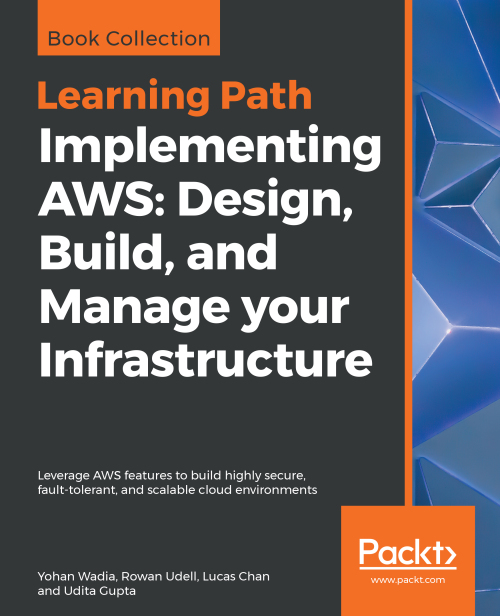Work through exciting recipes to administer your AWS cloud Key Features Build secure environments using AWS components and services Explore core AWS features with real-world applications and best practices Design and build Lambda functions using real-world examples Book Description With this Learning Path, you’ll explore techniques to easily manage applications on the AWS cloud. You’ll begin with an introduction to serverless computing, its advantages, and the fundamentals of AWS. The following chapters will guide you on how to manage multiple accounts by setting up consolidated billing, enhancing your application delivery skills, with the latest AWS services such as CodeCommit, CodeDeploy, and CodePipeline to provide continuous delivery and deployment, while also securing and monitoring your environment’s workflow. It’ll also add to your understanding of the services AWS Lambda provides to developers. To refine your skills further, it demonstrates how to design, write, test, monitor, and troubleshoot Lambda functions. By the end of this Learning Path, you’ll be able to create a highly secure, fault-tolerant, and scalable environment for your applications. This Learning Path includes content from the following Packt products: AWS Administration: The Definitive Guide, Second Edition by Yohan Wadia AWS Administration Cookbook by Rowan Udell, Lucas Chan Mastering AWS Lambda by Yohan Wadia, Udita Gupta What you will learn Explore the benefits of serverless computing and applications Deploy apps with AWS Elastic Beanstalk and Amazon Elastic File System Secure environments with AWS CloudTrail, AWSConfig, and AWS Shield Run big data analytics with Amazon EMR and Amazon Redshift Back up and safeguard data using AWS Data Pipeline Create monitoring and alerting dashboards using CloudWatch Effectively monitor and troubleshoot serverless applications with AWS Design serverless apps via AWS Lambda, DynamoDB, and API Gateway Who this book is for This Learning Path is specifically designed for IT system and network administrators, AWS architects, and DevOps engineers who want to effectively implement AWS in their organization and easily manage daily activities. Familiarity with Linux, web services, cloud computing platforms, virtualization, networking, and other administration-related tasks will assist in understanding the concepts in the book. Prior hands-on experience with AWS core services such as EC2, IAM, S3, and programming languages, such as Node.Js, Java, and C#, will also prove beneficial.









![Vashti Bunyan - Just Another Diamond Day [CD]](https://avmedia.ams3.cdn.digitaloceanspaces.com/6/67/66797d3f-d734-4560-bd02-4200215b1b76.webp)


![Damien Rice - My Favourite Faded Fantasy [VINYL]](https://avmedia.ams3.cdn.digitaloceanspaces.com/4/18/41832656-38a8-4434-b090-0580cff4b5e4.webp)